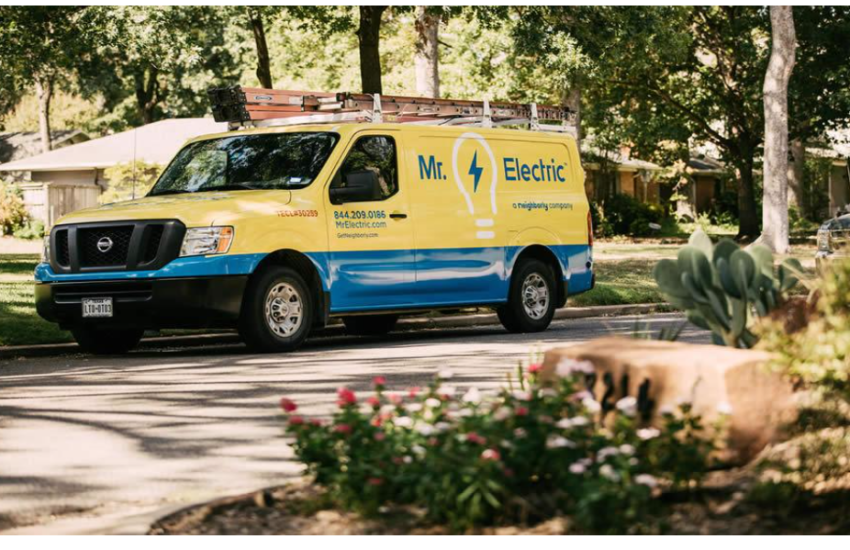How To Decide If Refinancing Your Mortgage Is For You
During your lifetime, becoming a homeowner is one of the biggest financial commitments you could possibly take. However, it is not the case that once you take out your mortgage that the interest rates will stay as you expected- they change.
Later on down the line, this means that there could be a much better deal on a mortgage that will help you to save money and release you from this financial burden sooner.
Replacing your existing mortgage with a new one is known as ‘refinancing’ your home. It is a great option for borrowers who always like to shop around for the best interest rates and terms as time goes on. Refinancing pays off the first loan you took out and creates a space for a second loan to be created.
It could also be a good way to convert a variable loan to a fixed rate mortgage, and therefore obtaining a lower interest for those who have the perfect credit history. Doing this if you have had any financial difficulties in the past may not be able to pose such a risk.
The pandemic has impacted on many people’s finances, meaning that some people have struggled to make ends meet enough to make their mortgage payments. This unstable economy can make this even tougher. As time goes on, it may be time for homeowners who continue to struggle managing their payments to remortgage their home.
Having the right knowledge for your refinance will help to eliminate the risk of harm later on down the line. Going into a refinance without the right level of knowledge may increase your interest rate instead of the desired effect of lowering it.
Below, you will read about some of the basic things you will need to know before making the decision to refinance your home, how to get the best deal possible for you, or whether there are other ways you can lower the cost of your mortgage repayments.
Why should I consider refinancing my home?
When it comes to considering a mortgage refinance, you should know that one of the biggest advantage points of a refinance is the reduction in interest rate– regardless of the equity.
Naturally, as people progress through their lives and careers, they may begin to earn more money. That money will be used to pay their bills and other financial obligations more quickly, therefore increasing their credit score.
An increased credit score will naturally incur lower rates for loans that are taken out–including on a mortgage. Many people will choose to refinance their homes for this very reason.
There is a potential to save hundreds of dollars per year due to a lower interest rate alone.
One other reason people might choose to refinance their homes is so that they have the money together to buy a new car, to pay off credit card debts that are impacting on their credit scores, or to cover renovation costs.
Many homeowners will work to improve the quality and condition of their home to suit their needs once they move in. While still continuing to make payments on a mortgage, they are able to take out credit in home equity and potentially increase the value of their property when it is time to sell.
Many homeowners will want to shorten the term of their loan from a 30- year to a 15-year loan which will save a lot of money on interest charges. Others may want to make the switch from a variable loan to a fixed rate mortgage. Having an idea of the mortgage lending products available from your lender will give you a good idea of the correct loan for you. This will highly depend on your financial goals.
Once you reach 20% equity on your home, refinancing will also serve as a way to eliminate private mortgage insurance. Some homeowners will opt for a straight rate-and-term refinance that will provide lower interest rates giving them a more comfortable repayment term in return.
How Many Types of Refinancing Are There?
When it comes to having options for refinancing, there are a number of avenues that you can go down.
These include:
Change Loan Duration, Which means simply shortening the duration of the loan which helps to reduce interest over time. By doing this you will own the home outright quicker. Or you may choose to lengthen the loan to reduce monthly payments.
Change Loan Structure, for those who used an adjustable rate mortgage to help make the initial payments more affordable. They are then able to transfer to a fixed-rate loan when they build up equity and have more income allowing them to do so.
Cash Out Home Equity which allows homeowners to extract equity from their homes. If equity is taken out to improve the quality of the home (paying for repairs or to make home improvements) the interest may be tax deductible.
Lower Rate Mortgages mean that in the event that mortgage rates decline, homeowners can choose to refinance in order to lower their monthly payments.
When is a good time to remortgage your home?
When mortgage rates are low, even those who have taken mortgages out in recent times may be able to harvest the benefits of refinancing. Basically, anybody who enjoys the idea of saving money, who wishes to pay off their mortgage sooner should see refinancing as a good option for them.
However, knowing exactly when to refinance is not always simply about the interest rates that could come with your potential new rate. Since the best rates are most likely to be offered to those with the best credit scores, you will also need to work out if your own credit score is good enough to be able to access these more desirable, affordable rates.
The savings you get from a lower rate mortgage should offset the cost of the refinancing throughout the duration. So with that in mind, it may not be a good idea to remortgage if you plan selling up and moving house within the next few years. You need to have had enough time to recoup the cost over time. Moving home so quickly after refinancing will not give you the benefits you would hope to achieve.
In answer to the question about knowing when the best time to refinance your home will depend on the equity you have in the home. It also depends on how long you are looking to stay in your present home, your financial condition, and your financial goals.
Once you are able to crunch the numbers ro answer these questions, you will then have a better idea of when to refinance your home.
How long does it take to remortgage?
The length of time it takes to remortgage highly depends on the lender, in addition to considering the additional tasks needed to take place such as inspections, appraisals, credit checks and any paperwork needed.
Your lender should provide information about the different loans they offer along with the interest rates attached to them.
Modern technology means that the mortgage application process may be accelerated and streamlined significantly with the introduction of online applications, document scanning apps on our smartphones, and e-signatures. This means that the application can be filled out without having to print a single sheet of paper or make one trip to your mortgage lender’s office. This means that many refinances can be completed within a 30 day window.
Are there risks for me and my home if I refinance?
As with any big financial commitment, there are likely risks attached to a refinancing including penalties.
Some mortgage agreements will have a provision that permits the mortgage company to charge a fee for refinancing that can cost thousands of dollars.
There may be some additional fees to make yourself aware of before completing the refinancing agreement. This will include bank fees, and the cost of paying an attorney who will help to handle the paperwork and to ensure you’re getting the best deal possible.
Shop around before making the commitment, or wait for a window for potential free or low fee financing that are sometimes offered by mortgage companies. In the long run, you want to make sure you are getting the best deal possible.
Make sure to read the small print before finalizing the agreement, and ensure that the penalty is covered.
Before I refinance my home, what else should I consider?
A common reason that people choose to refinance their homes is that they can improve their homes and their financial situations simultaneously.
However, a refinancing loan is still a debt, and racking in debts can take you back to where you were financially before. A debt from a mortgage is not like credit card debts. It is kept secure by your home, and any missed payments could result in losing your home to foreclosure.
In order to prevent this from happening, a homeowner who wishes to borrow money through refinancing should look into alternative credit to give them the cash injection that they need.


